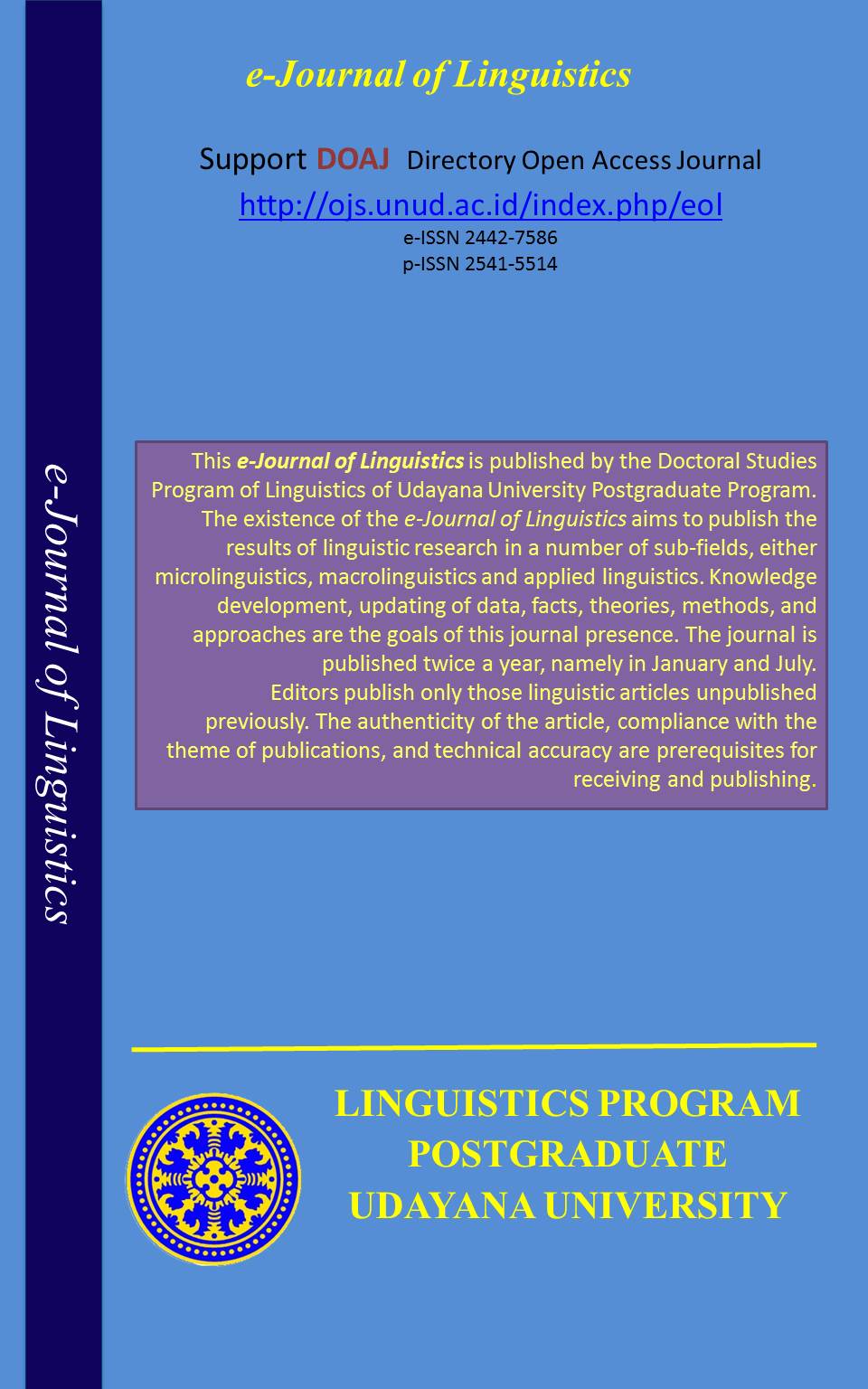Lingual Domination in Tourism Discourse: A CDA Study
Abstract
This study examines tourism discourse in the national print media to answer a research question of how lingual domination is presented in the tourism discourse. This study uses a method of qualitative research methodology. The approach in this study is a phenomenological approach using the phenomenon of the use of language in national printed media. The grand theories used in this research is the theory of critical discourse analysis proposed by van Leeuwen (2005 ; 2008) and lingual domination by Burton (2008 ; 2012) with a supporting theory of Critical Discourse Analysis proposed by Fairclough (1989; 1995). The research results of this study indicate that lingual domination in tourism discourse show social effects on 1) attitude change; 2) cognitive change; 3) collective reactions; 4) personal reactions; 5) agenda setting; 6) socialization; 7) social control; 8 ) defining reality; and 9) endorsement of dominant ideology.
Downloads

This work is licensed under a Creative Commons Attribution 4.0 International License











